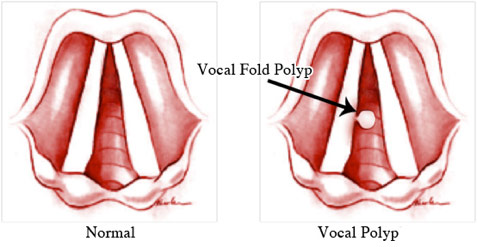- Question: How do the ingredients in e-cigarettes and vaporizers affect respiratory health? - August 16, 2019
- Bad Technique and Vocal Injury - January 9, 2019
- Is Edible Marijuana Dangerous for the Voice? Myths Dispelled - December 18, 2018
- Surprise! You have a hemorrhage - January 31, 2018
- Graves’ Disease: Treatment Overview - September 25, 2017
- Adele and the Stigma of Vocal Injury - July 11, 2017
- Vocal Curbside Consult: How does the thyroid affect the voice? - May 16, 2017
- Vocal Curbside Consult: How do hormones affect the voice? - May 3, 2017
- Vocal Curbside Consult: How do emotion and stress affect the voice? - April 17, 2017
- Vocal Curbside Consult: Vocal Recovery After Illness - April 7, 2017
 Add to the ever-growing list of singers who need vocal surgery the lead singer of The Wanted, Nathan Sykes. Already on the road to recovery, Sykes is now in a period of voice rest and rehabilitation after having surgery. Reports state the surgery was an emergency and that he had suffered a hemorrhage.
Add to the ever-growing list of singers who need vocal surgery the lead singer of The Wanted, Nathan Sykes. Already on the road to recovery, Sykes is now in a period of voice rest and rehabilitation after having surgery. Reports state the surgery was an emergency and that he had suffered a hemorrhage.
Given that surgery was required, which is the exceptionally rare for hemorrhages, chances are more likely that a hemorrhage resulted in the formation of a mass. The most common mass to form due to a vocal hemorrhage is a polyp, which is a collection of fluid that grows off the edge of the vocal cord.
How does a polyp form?
The vocal folds vibrate (or contact each other) several hundred times per second when singing and speaking. This puts a lot of stress on the vocal folds. Speaking or singing incorrectly, in a bad environment (i.e., smoky, dry, etc), or for prolonged periods of time causes them to swell.
If you continue to use your voice, the swollen tissue will and become thicker until it becomes too thick to go away. It is then called a polyp. A polyp may also form if a blood vessel in the vocal cord ruptures, causing a hemorrhage. If not diagnosed correctly, the hemorrhage can result in a polyp.

Is a polyp an emergency?
While a polyp is not an emergency, a hemorrhage is. Correct and timely diagnosis is critical to avoid complications. Complications of an undiagnosed hemorrhage include:
- Vocal scarring
- Vocal polyp formation
Why is diagnosis of a hemorrhage important?
The only way to avoid the complications listed above is to rest your voice when you have a hemorrhage. A hemorrhage will make you hoarse but so will many other things, including a cold. If you incorrectly think your hoarseness is due to a cold or voice overuse, when it is really due to a hemorrhage, you may continue to talk or force your voice. Talking will make the hemorrhage heal poorly and may result in irreversible damage (scarring) or mass formation (polyps, etc). The best way to know if you have a hemorrhage is to have a videostroboscopy of your vocal cords.
What happened to Nathan Sykes?
Most likely, Sykes suffered a hemorrhage. At that point, he may have pushed his voice due to work responsibilities, which could have resulted in a mass and the need for vocal surgery. The undiagnosed hemorrhage appears to increasingly be the culprit in many of these singers who have voice problems.
This is likely because singers have tremendous pressure to work, even when hoarse or ill. This puts them at a high risk for hemorrhage. However even the resultant hoarseness from the hemorrhage is something that singers try to push through, reluctant to cancel a performance. And this last step is where many singers run into trouble that requires surgery.
The good news is that in good hands, Sykes, and other singers who require surgery, are likely to recover quickly, returning to stage wiser and more aware of how their instrument works.
Read patient stories about Dr. Reena Gupta from The Division of Voice at the Osborne Head and Neck Institute.
To learn more about the voice, click here.




